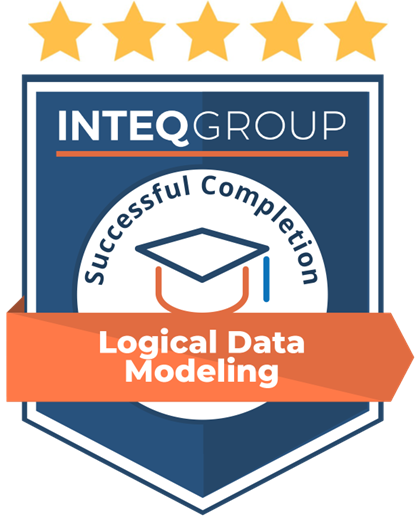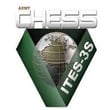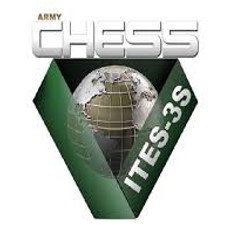- About
- Contact
- Training Courses
- Certificate Programs
- Management Consulting
- Knowledge
hub
Certificate Programs
Inteq’s Data Modeling course delivers a practical, hands-on approach to mastering data modeling, including data modeling techniques, relational data design, and data-oriented business rules.
Participants learn to create accurate, extensible data models via Entity Relationship (ER) diagrams - critical for organizing relational data within relational databases in DBMS environments.
This course emphasizes translating complex business requirements into clear, effective, adaptable data models - enabling stronger collaboration between business and technical teams and ensuring scalable, efficient systems that support complex transactional systems and data-driven decision-making.
This is not just a training course but a transformational experience that prepares you to become a trusted advisor for the challenges of tomorrow's business landscape.
Join over 300,000 business and IT professionals trained by Inteq worldwide
Course Highlights
Who Should Attend
This course is perfect for:
Why Choose Inteq’s Data Modeling Course
Data-oriented business rules
The business vocabulary
Business transactions vs. business intelligence
Rules vs. knowledge
ER diagrams and data models
Business entity types
Attributes and meta-data
Cardinality and dependency
Principle relationships
Domain entity types
Associative relationships
Domain-based associations
Repeating groups
Transactional relationships
Super type / sub-type relationships
Recursive hierarchies
Recursive networks
Role-based associations
Time-dependent data
Tactical and strategic business questions
Business facts and dimensions
Analyzing cross-organizational facts
Dimensional modeling
Normalizing business data
Generalizing business entities
Analyzing meta-data for abstractions
Participants analyze a complex business domain and develop a comprehensive logical data model. This case study provides an invaluable data model template that participants can leverage to jump start and improve logical data modeling and data analysis in their organization.
Overview of Generative AI (GenAI)
The secret sauce: Asking the right questions via prompt engineering
Applying AI prompt engineering to identifying data oriented business rules.
10 myths of analysis
Scaling models to the enterprise level
Model transformation; conceptual > logical > physical
Using reference models to leverage analysis
Implementation considerations and best practices
Getting started
* Before using AI as part of your data modeling toolkit, it's essential to first deeply understand data modeling best practice concepts, skills, techniques and methods. You can then leverage this knowledge via GenAI prompt engineering to amplify and enhance the speed and quality of data modeling.
OK, there is not a box per se, the content is digital. In addition to 2-days/16 hours of expert instruction you receive:

2, 3, 4 and 5-Day
Customized Training Options
Save 10% off the total tuition if 3 or more 16-hour eLearning courses are purchased together. The tuition savings is displayed in the cart and at checkout.
Questions or need additional info? Contact us at 800.719.4627 or reach out here We look forward to assisting you!
"Very well organized, thorough, appropriate amount of individual work, group work, and lecturing. I appreciated the extra time given to allow diagrams to sink in."
"Great online course that covered all the essential data patterns. The instructor was excellent...very polished, knowledgeable and thorough. The examples he used and the time he gave us to relate it to our industries was invaluable."
"The instructor interaction with the group was invaluable - to consistently ask for our day to day business examples to help relate the concepts from the course. Also found the custom or proprietary data modeling patterns helpful. Very insightful way to take a different approach to the 'by the book' criteria."
"Very well organized, thorough, appropriate amount of individual work, group work, and lecturing. I appreciated the extra time given to allow diagrams to sink in."
"Great online course that covered all the essential data patterns. The instructor was excellent...very polished, knowledgeable and thorough. The examples he used and the time he gave us to relate it to our industries was invaluable."
"The instructor interaction with the group was invaluable - to consistently ask for our day to day business examples to help relate the concepts from the course. Also found the custom or proprietary data modeling patterns helpful. Very insightful way to take a different approach to the 'by the book' criteria."























